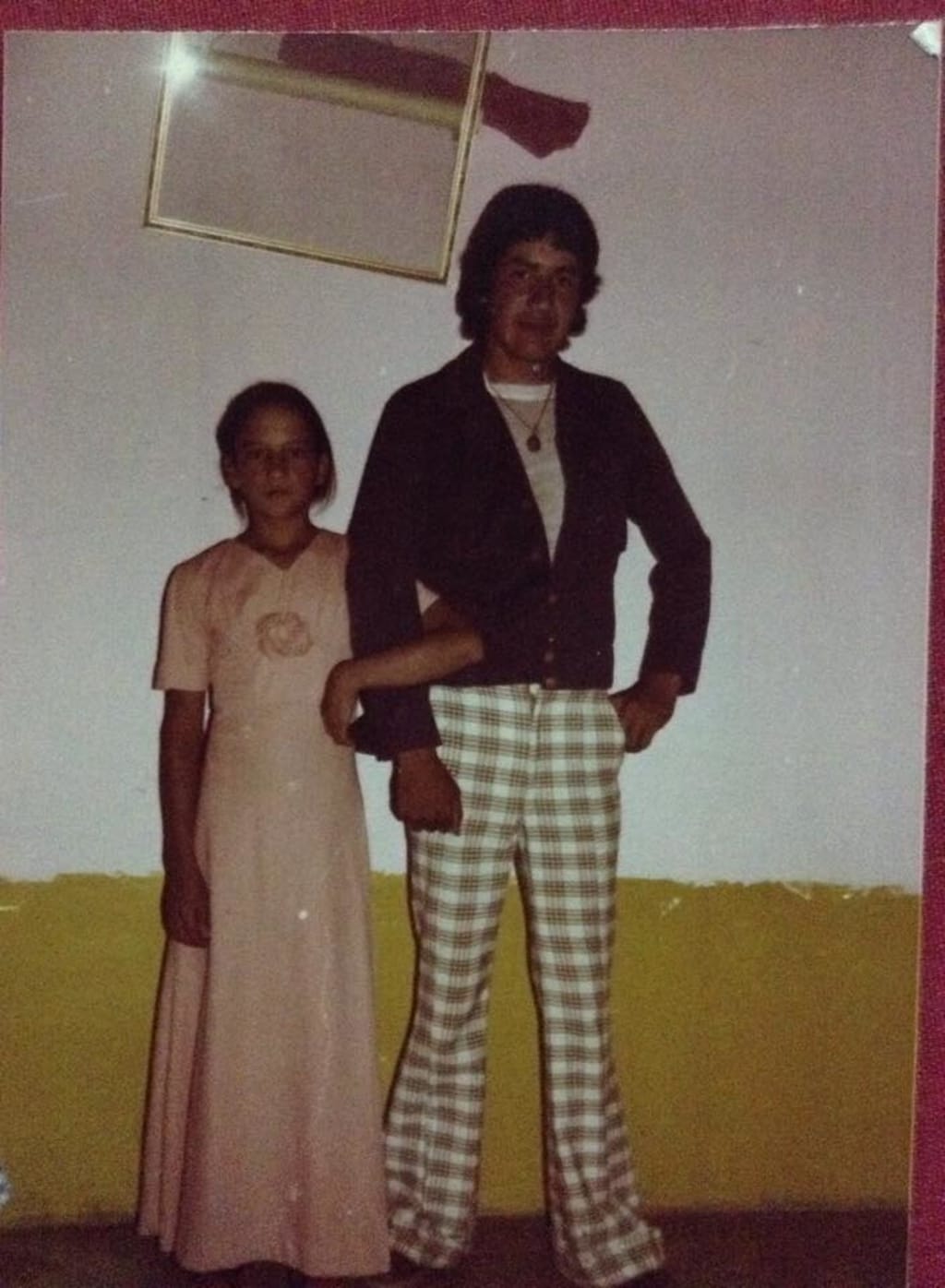The Price of Education and Teaching: Part I
What Can Make or Break Students/Teachers

When I was growing up, I never even imagined finishing elementary school; this was especially true due to our family's severe poverty, so I was lucky I survived adolescence and graduated from elementary school but by barely making the grades; I'd no idea what would happen next, but that's when my mother told me she was going to el norte, and she'd take me with her if I behaved. It was hard to believe she'd chosen me out of nine children. She then told me she didn't want to leave me behind because I'd get in trouble; so I was determined to behave and not talk back to her so she wouldn't change her mind; that was one of the most difficult things for me to do.
We made the three-day bus trip to Tijuana and stayed with a host until we could get 'papers' to cross; I knew once I was on the 'other side,' I'd either go to school, work or both but felt frightened because I had no skills whatsoever. The long wait before crossing was almost unbearable because I missed my siblings, home, and dad, but I was glad I was with mom. The only thing I liked about our stay was the big, clean house and beautiful garden, but I couldn't even smell the flowers; I wasn't allowed to 'destroy' plants. After about a month, I was able to cross via San Isidro and ended up meeting my brother in San Diego; I hadn't seen my brother in over five years and was happy to see him and drive in his car. I'd never been in a car before, nor had anybody in my family owned one, so that was my first new experience in the States; well, that is, until we started driving under overpasses, through tunnels, and crazy freeways. I'd duck each time we approached a tunnel or overpass because I was afraid I'd hit my head.
When we arrived at my aunt's home where my brother lived, I met cousins I'd never met, and they all spoke English, but I only knew a few words. My aunt was very welcoming, but my male cousins not so much; they started bullying almost from the beginning. The only one who treated me well and helped me with English was my youngest female cousin; the older ones were rarely home.
A few months after arrival, I started junior high and was too old for it, but I couldn't go to high school because of the language. I was struggling in junior high because of academics and English, but I was being discriminated against by other Latino/Mexican students because, according to them, I 'spoke Spanish like a peasant;' and they were not wrong, but that didn't give them the right to mistreat and humiliate me. The insults hurt, but I used them to motivate me to learn better Spanish, and that's exactly what I did, so I was learning two languages concurrently, and it was overwhelming and even discouraging. It was during this time that I began to think more seriously about my education and going on to high school, but I was fully aware it wasn't going to be easy. A teacher from the high school came to talk to some of my teachers about my chances of being promoted. It was obvious to me that most teachers didn't think I was ready, but the visiting teacher said I should be 'given a chance;' those were the best words I'd ever heard. Once in high school, this teacher, Mrs. Reyna, was one of my ESL, English as a Second Language, teachers and later became my advisor, mentor, and friend...
High school was a totally new and different experience; I met and made friends with students from different parts of the world, but my best friends were two Mexican and a Jordanian, and I learned a few words in Arabic; it was also fun to learn that many Arabic words were almost like Spanish, like gum, pants, knife, shirt, and pillow. There were many students from Iran, Iraq, and Lebanon, but they mostly kept to their own ethnic group unless we had a celebration by our International Students Club, a club headed by Mrs. Reyna, a beloved English teacher.
...Mrs. Reyna never took a break, it seems; students were in her classroom, before school, during recesses, and after school, and she never turned anybody away. Sometimes we were a bunch of little boogers with her, but she always talked with us with soft voice and never lost her cool. Even though she spoke Spanish, she rarely used it but used one sentence to differentiate English from Spanish: El caballo blanco; The white horse, to demonstrate that the noun comes before the adjective in Spanish, and the adjective comes before the noun in English, and with that simple phrase we started learning English, at least Latino students did. Later I realized that it didn't matter what language the teacher spoke with students but the techniques or strategies he/she used. Eventually I left the ESL program against the director's advice and started 'regular' English classes. Mrs. Reyna told me she'd support any decision I made, and I knew I was making the right one. I told the director I'd learned everything I could from the program already, and if I stayed, I'd be wasting my time. I also told her that if I stayed and failed, I'd hold her responsible, but if I went to English classes and I failed, it'd be my responsibility.
The beginning in English or regular classes was rough, and I was failing quizzes in English literature, but I soon figured out what to do and went from getting zero points to the full points in just a few weeks, literally; like in junior high, I had to teach myself tricks to learn things because teachers 'didn't know what to do' with me; I guess I was smarter than them, and that made me feel proud and more motivated to work harder.
About the Creator
Martina R. Gallegos
Ms. Gallegos came from Mexico as a teen; she went to university, and got her teaching credential.She graduated with her M.A. June 2015 after a severe stroke. Works have appeared in Silver Birch Press, Lummox, https://poetry309.wordpress.com






Comments
There are no comments for this story
Be the first to respond and start the conversation.